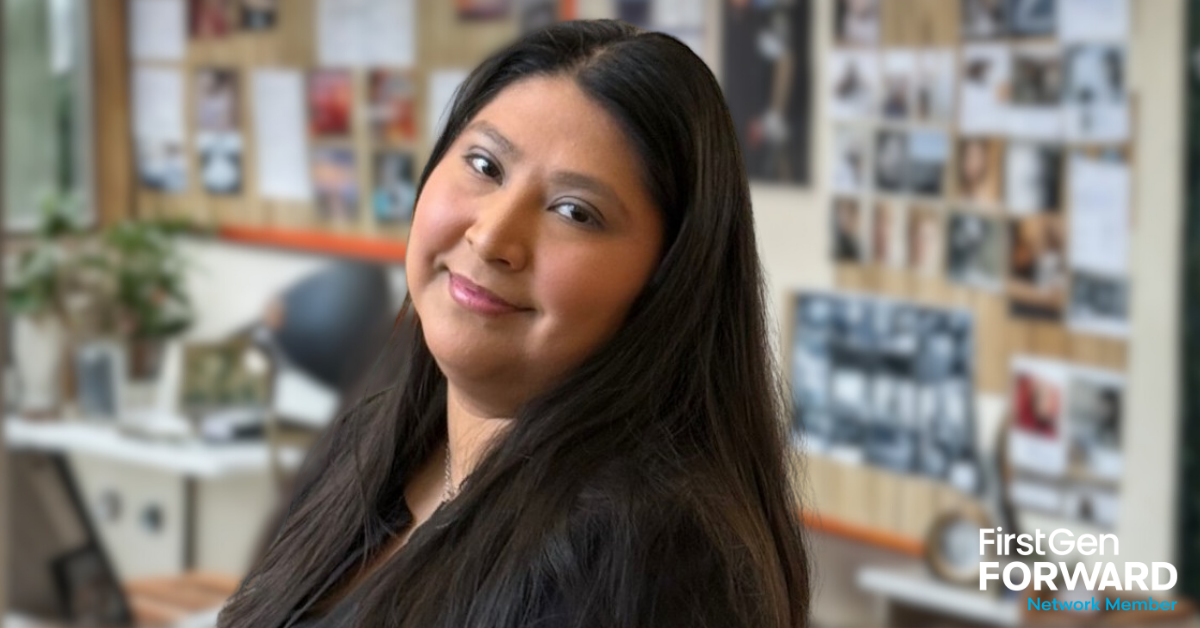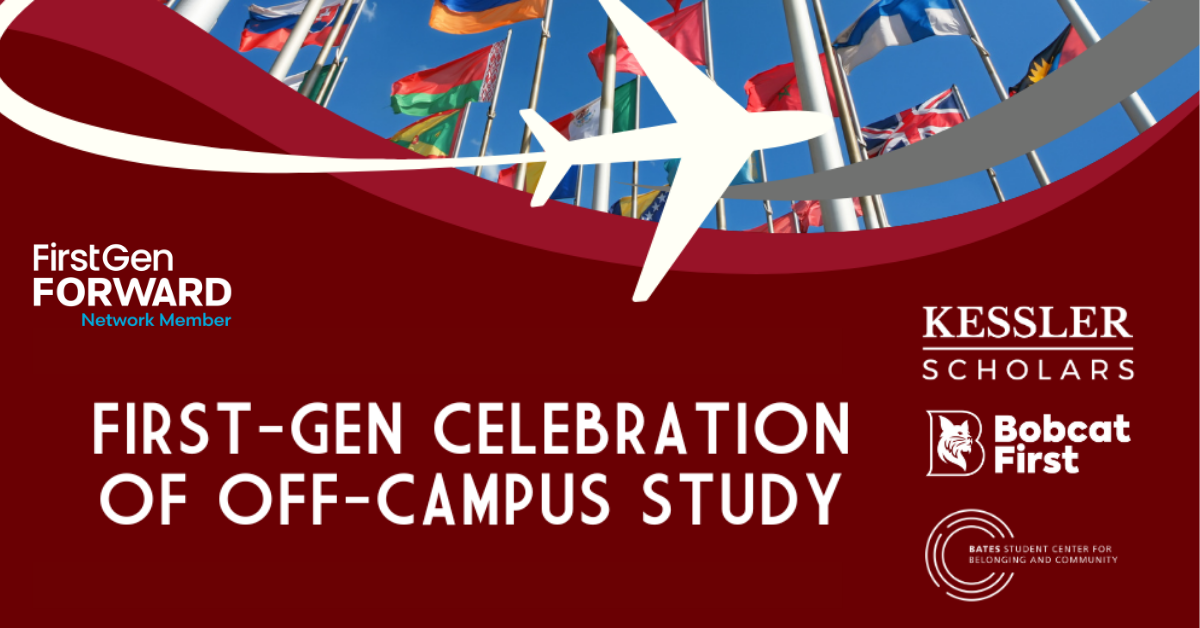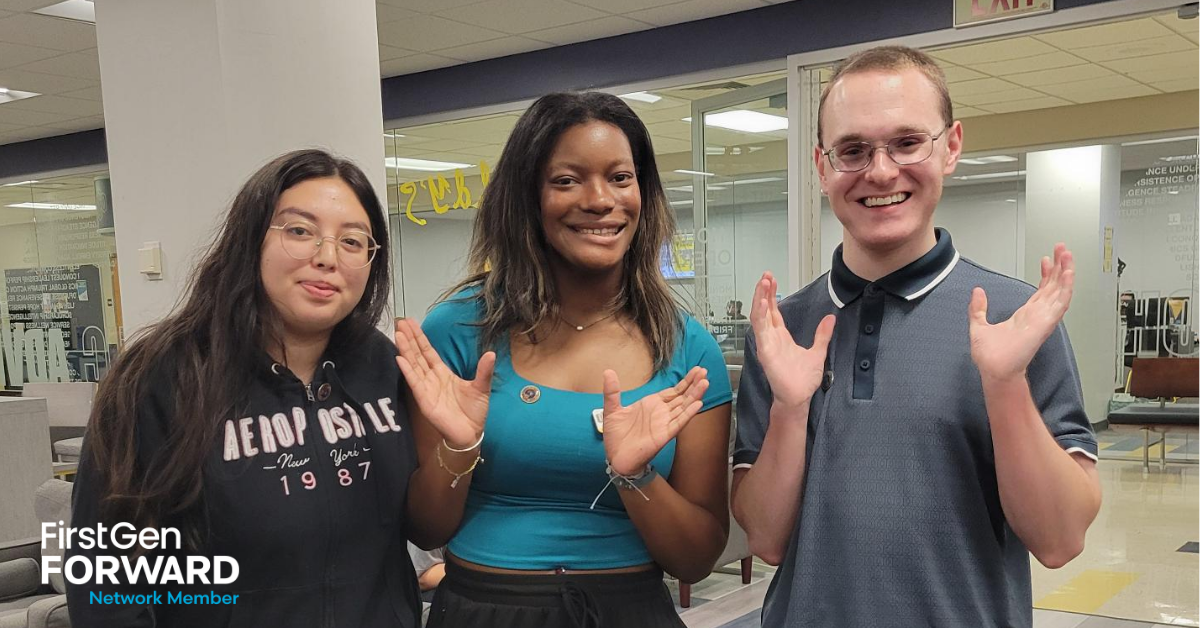Caio Menezes is a sophomore at Babson College and a first-gen, international, Global Scholar from Brazil. He also serves as an intern to the inaugural First-Generation Student Success Office at Babson College.
In this blog, he shares the experiences of two first-gen students, Bea Cordeiro and Lavar Buckmon, who embrace the challenges and opportunities of studying abroad. Bea is a senior who completed a study abroad in Barcelona, Spain. Lavar is a junior currently studying abroad in Amsterdam, Netherlands.
Studying abroad can be a life-changing experience, offering academic and personal growth opportunities. But for first-generation students, the decision to go abroad comes with additional challenges—navigating finances, stepping into the unknown, and sometimes being the first in the family to embark on such a journey. Despite these obstacles, first-generation students bring resilience, adaptability, and a unique perspective to their experiences abroad.
As a first-generation student, navigating college is already a new challenge. What motivated you to add the experience of studying abroad to your journey?
BEA: Being a first-gen also means being the first in your family to go through a lot of situations (both good and bad). For me, studying abroad in Barcelona was a way to pursue the 'good' that comes with the opportunity of being the first. My parents have always wanted to visit Europe but never had the chance to do so. During my time in Barcelona, I was able to share my experience with them, showing them Europe through my eyes. As first-gen students, we have the power to open doors not just for ourselves, but for our families too, and I think that is worth the added challenge.
LAVAR: For me, being abroad is my first time traveling outside of the US, something I've always known I wanted to do. Being able to experience travel in an easily mediated setting through Babson is something that I did not want to pass up!
Studying abroad can offer unique academic and personal growth opportunities. How has this experience impacted you in those areas?
BEA: Studying abroad was a journey of self-discovery, where I got to meet a new version of Bea. I faced challenges, from navigating the new culture to solving problems on my own, but each obstacle taught me to trust myself and my abilities. Honestly, I came back feeling more prepared to deal with both academic and personal issues. I even got a tattoo related to my time abroad as a reminder of the growth I experienced.
LAVAR: Studying abroad has allowed me to immerse myself in a multitude of different cultures. I am constantly finding new ways to express my academic and personal interests.
We know that as first-gen students, one of our greatest skills is resilience and the ability to adapt to new environments. How has being a first-gen student helped you overcome challenges and adapt to your new environment while studying abroad?
BEA: As a first-gen, I was already kind of used to the adrenaline of facing the unknown. I feel like one of the hardest parts of being abroad is having the courage to step into something completely new. If you are a first-gen, however, you have probably already dealt with that feeling. I knew I would be able to figure stuff out on my own because it would not be my first time doing so, which alleviated a lot of the stress in my new environment.
LAVAR: Being a first-gen student has helped me navigate the experience of being in a new place, while also being able to ground myself in my home roots. Much like my freshman year college experience, I am learning new ways to make myself comfortable in new spaces.
Deciding on a study abroad program involves many factors. What were the key features that led you to choose your specific program, and what excites you most about it?
BEA: The weather, culture, and affordability were the key factors I was looking at. I knew I wanted to be somewhere warm, and Barcelona gave me the chance to live just a few blocks away from the beach! I was also really excited about the culture and language as Spanish was a language I wanted to learn. Overall, I was looking forward to escaping Boston's winter while learning new things.
LAVAR: When deciding where I wanted to study abroad, I knew I wanted to go somewhere where many people spoke English, while also being somewhat out of my comfort zone. The central European location of the Netherlands was also a big factor for me, as I am able to easily travel to major European cities.
What advice would you give to other first-gen students considering studying abroad?
BEA: Trust yourself. Being a first-gen student already gives you many of the tools necessary to thrive while in a new country, so take advantage of that to expand on your limits. Also, studying abroad is a chance for you to study yourself. Be open to new foods, friendships, and activities so that you meet a new version of yourself. Everything will be fine. You just have to take the first step.
LAVAR: If I could give any advice to other first-gen students considering studying abroad, I would say to make sure you are in love with your abroad destination before you go, as you will be spending most of your time there. Although you may be traveling a lot, it is extremely important to always be happy to return to your abroad home. Also, get housing early if you can!
The First-Generation Student Success Office
For first-gen students at Babson College, the First-Generation Student Success Office serves as a support system, providing mentorship, resources, and a space to connect with others who share similar experiences. Whether navigating financial aid, exploring study abroad options, or just seeking community, this office is dedicated to empowering first-generation students to make the most of their college journey.
Bea and Lavar's experiences highlight how studying abroad is more than just academics—it is about personal discovery, resilience, and creating opportunities beyond oneself. For first-gen students, stepping into the unknown can be intimidating, but as Bea and Lavar put it, "Everything will be fine. You just have to take the first step."
For more information on Babson College's approach, please visit their website here.
.png)


